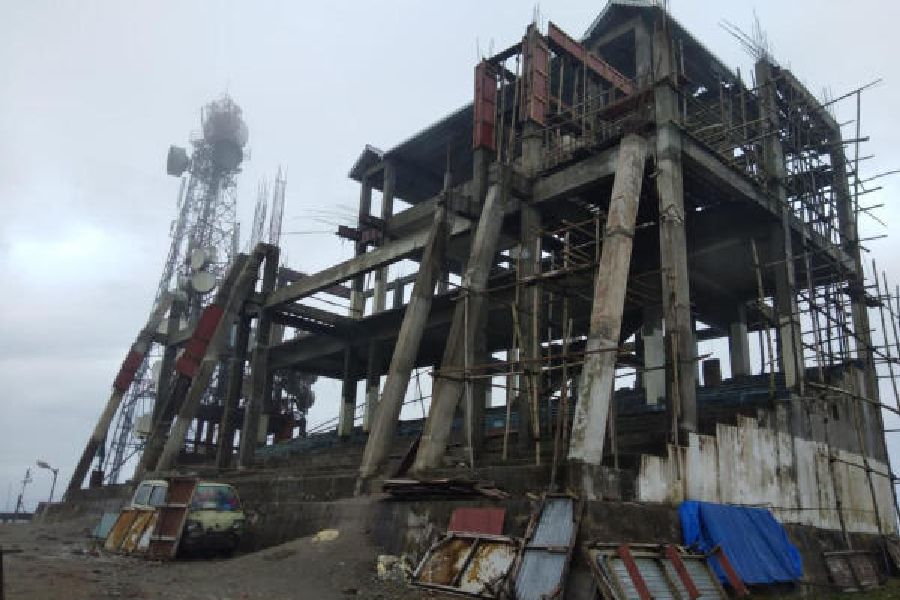The National Green Tribunal (NGT) has taken cognisance of complaints that the sanctity of Tiger Hill, a popular tourist destination inside the Senchal Wildlife Sanctuary in Darjeeling, is being violated.
Subash Datta, a green activist from Howrah, approached the NGT’s eastern zone bench in Calcutta, alleging gross violations of various environmental norms in one of the oldest wildlife sanctuaries in the country.
Tiger Hill, situated at an altitude of about 8000ft in Darjeeling, is popular among tourists to catch a glimpse of sunrise whose first rays illuminate Mt Kanchenjungha.
“This historical place is not only a green zone but also a source of drinking water
in the whole of Darjeeling town and the adjoining places. Although Tiger Hill has been declared a protected area, restricted activities have become rampant there,” said Datta.
The issues flagged by the 74-year-old Datta are as
follows:
Concretisation
Just to facilitate tourism, the Tiger Hill viewpoint has been concretised and uncompleted structures have come up. There is no valid reaon to concretise the topmost flat zone of the catchment area that falls in the protected zone. Such constructions are neither permitted nor required.
Mobile towers
Several mobile towers of the BSNL and private operators have been set up in the topmost part of Tiger Hill. Such constructions should not be allowed in a protected sanctuary and a catchment area.
Lack of sewers
To cater for the needs of tourists and local people, big public conveyances/toilets have been set up without an appropriate sewerage management system. Such acts might pollute the underground aquifer.
Plastic waste
Although Tiger Hill is a plastic-free zone, plastic wastes are found in some spots which bear marks showing that such trash items are burnt there.
Forest museum
The forest museum inside the sanctuary is not needed at all.
Parking space
A big car parking space is being developed. It is not permissible to change the basic character of the area which is not just a wildlife sanctuary but also a catchment area for lakes.
Lack of planning
According to the notification of the Union ministry of environment, forest and climate change, monitoring committees need to be set up in eco-sensitive zones like the Senchal Wildlife Sanctuary. However, no such committee has been set up for Senchal and there are no zonal and tourism master plans or a rain harvesting system in 10 villages within the 0.5km-radius of the sanctuary.
The villages together have 42,483 residents.
Human settlements
Human interference and new settlements of people at the hilltop are increasing day by day.
Datta has sought various redressal measures, including the removal of the towers and the concrete structures, preservation of the greenery at the top, a ban on human habitation, and a halt in plans to change the green cover and operation of toilets without a proper sewage management system.
Environmental activists have also sought the prohibition of or regulation in the use of plastic, widening and the strengthening of existing roads or the construction of new ones, a ban on the movement of vehicles at night and reckless eco-tourism activities.
Justice B. Amit Sthalekar and expert member Dr Arun Kumar Verma of the NGT (eastern zone bench) on Wednesday asked the state urban development and municipal affairs department, Union ministry of environment, forests and climate change, the Bengal government, the West Bengal Pollution Control Board and Darjeeling municipality to “file their counter-affidavits within four weeks”.











